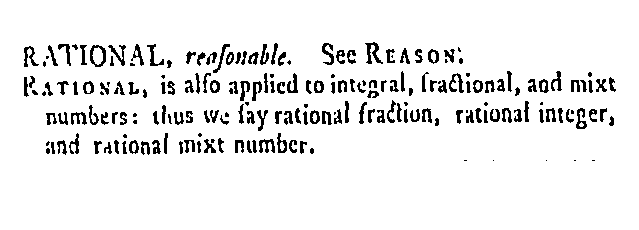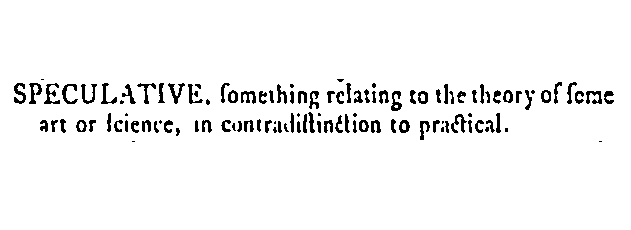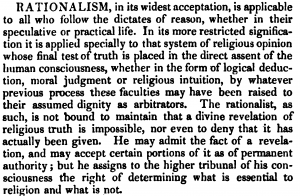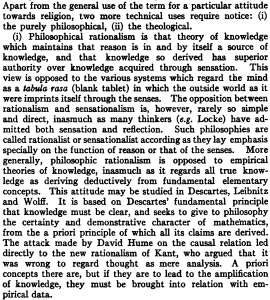Tracking Terms in the Encyclopædia Britannica: Part II
Juan Gomez writes…
In my previous post I explored the use of the terms ‘experimental philosophy’ and ’empiricism’ in the Encyclopædia Britannica. Today I will look at the terms ‘speculative’ and ‘rationalism’ throughout the first nine editions of the Encyclopædia.
Speculative
There is no entry for ‘speculative philosophy’ in any of the eighteenth and nineteenth century editions. However,the term ‘speculative’ on its own appears in the first seven editions (1771-1827). It is a very short entry, it was never expanded or modified and it disappears entirely from the 1853 edition onwards.
We can see Bacon’s contrast between speculative and practical present in this definition which remained in the exact same form in all the editions it appeared. It seems to be more of a dictionary definition pertaining to the standard meaning of the word at the time. This is also the case for the term ‘rational’ that appears only in the first edition (1771) of the Encyclopædia.
Rational/Rationalism
Although there was no entry for ‘rationalism’ until the 1853(8th) edition, we do find a brief entry for ‘rational’ in the first edition:

This is the only entry for ‘rational’ in any edition of the Encyclopædia. We can see that it does not have any connotation other than its specific use in mathematics and its use as an adjective meaning ‘reasonable.’
On the other hand, ‘rationalism’ appears for the first time in the same edition where the terms ’empiric’ and ‘experimental philosophy’ disappear, and there is no entry for ’empiricism’ yet (it first appeared in the 11th edition in 1910). We can see here that even by the mid-nineteenth century the term still had a restricted meaning that pertained specifically to religion.
As it was the case with ’empiricism,’ ‘rationalism’ only appears in its modern sense in the twentieth century, where two definitions if the term are given: one referring to it’s use regarding religion present in the quote above, and the second one regarding its use in philosophy:
It is not until the first decades of the twentieth century that we see the terms ‘rationalism’ and ’empiricism’ being used to refer to early modern philosophy, showing that the ESD framework has some considerable advantages over the RED for interpreting the Early Modern period.




